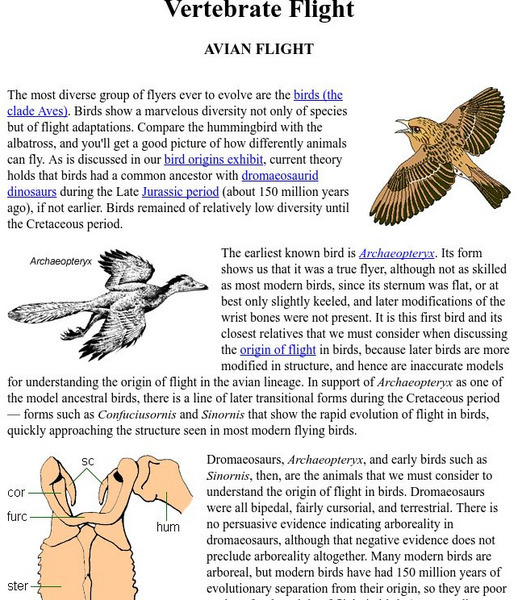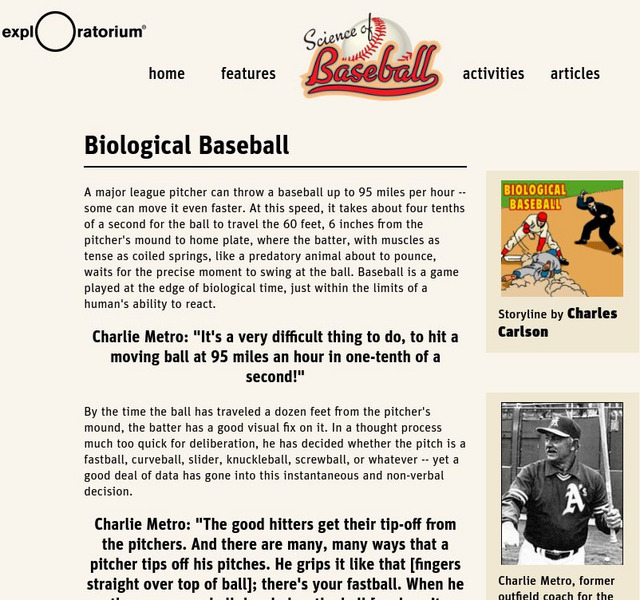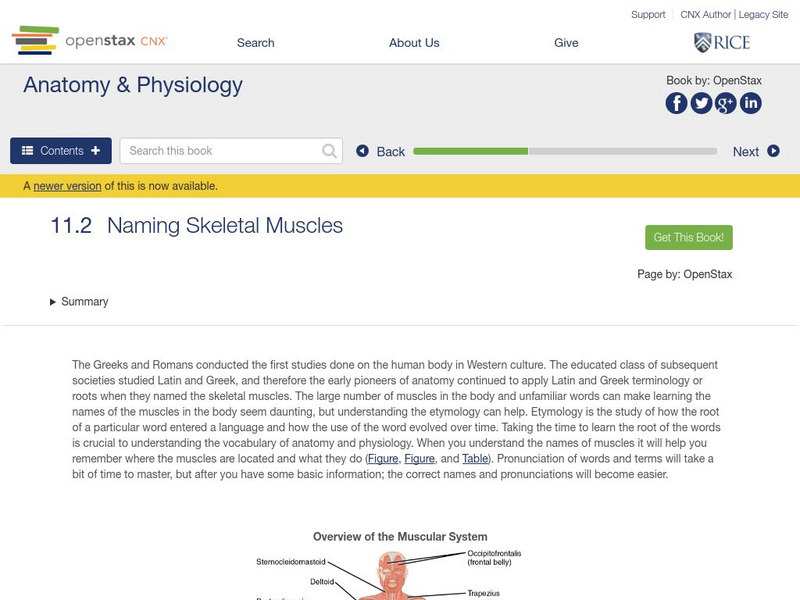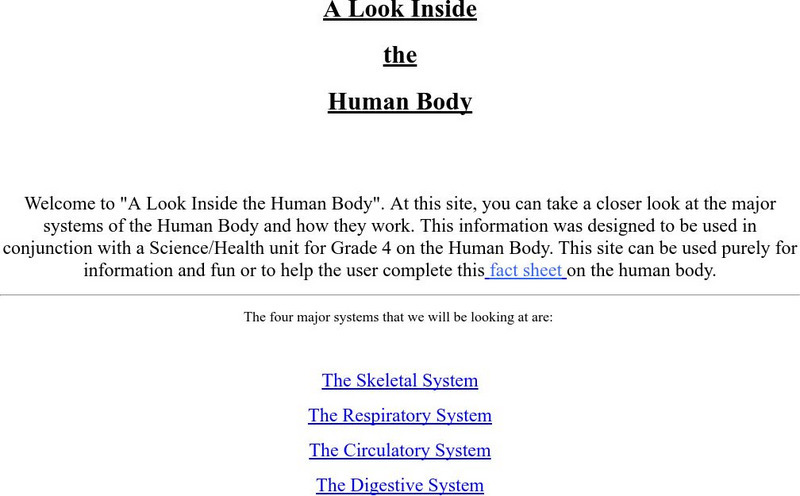Hi, what do you want to do?
E-learning for Kids
E Learning for Kids: Science: Caribbean Sea: What Are Muscles?
This interactive module introduces young learners to the function of muscles by connecting them with pirate treasure. Learn about muscles and muscle identification, especially those muscles that help you really function. For each correct...
Other
University of Cincinnati Biologist Finds Differences in Lizard Locomotion
This site from the University of Cincinnati explains how biologist Bruce Jayne has studied the lizard nervous and muscular systems to discover finds that may uncover evolutionary trends.
University of California
Ucmp: Vertebrate Flight
A very solid Berkeley site on the structure and function of bird flight. Topics include skeletal and muscular adaptations for flight.
E-learning for Kids
E Learning for Kids: Science: Diving School: How Do We Move?
Mariven lives in Barbados. He is going on a diving adventure to learn all about bones and muscles of the human body.
University of California
Ucmp: Aves More on Morphology
A good discussion of the major adaptations of the skeleton of birds in order to adapt to flight.
Earth Life
Earth Life: Mammalian Skeleton
A very good overview of the structure and function of the mammalian skelton. Includes a nice graphic of an elephant skeleton which serves as a typical (though big) example.
Exploratorium
Exploratorium: Science of Baseball: Biological Baseball
Younger students learn that hitting a baseball requires the use of various brain to body reaction activities and how those compare to the instincts and actions of animals.
Other
Anatomy Arcade: Poke a Muscle
Work your way through the muscles as you play this game. Click on the muscle that is named to earn points. You must get all correct in order to proceed to the next level, which ensures repeated practice if you make errors. There are ten...
BBC
Bbc: Applied Anatomy and Physiology: Muscles and Movement
Learn what muscles are, how they are classified, and how they are attached to the body's skeletal system. This site contains several definitions, illustrations showing the parts of muscles, and a quiz to test your knowledge of muscles...
CK-12 Foundation
Ck 12: Biology: Smooth, Skeletal, and Cardiac Muscles
[Free Registration/Login may be required to access all resource tools.] An overview of the three types of human muscle tissues.
OpenStax
Open Stax: Naming Muscles
This site helps you understand where muscles get their names. When you understand the names of muscles it will help you remember where the muscles are located and what they do
OpenStax
Open Stax: Forces and Torques in Muscles and Joints
From a chapter on Statics and Torque in a Physics textbook. This section of the chapter provides an in-depth discussion of forces and torque in the human body. We learn about muscular force, the importance of posture in preventing back...
Other
Health Communities: Parkinson's Disease
This site discusses the mystery and complexity of Parkinson's Disease. It mentions the history of the disease, signs and symptoms and incidence.
Earth Life
Earth Life: Locomotion of Mammals
Good site for some general information on the movement of mammals. Gives a description and gives the average speed of a variety of animals.
Other
A Look Inside: Human Body
Learn how our body works at this personal site from a fourth grade teacher. Colorful graphics and lots of fun facts.
Other
Get Body Smart: Functional Anatomy of Skeletal Muscles
Brought to you by Get Body Smart, students can learn about the human musculoskeletal system through this easy-to-access tutorial. Sections include muscles that act on the arm, shoulder, forearm, wrist, palm, digits, anterior thigh,...
Smithsonian Institution
National Museum of Natural History: American Mammals: Southeastern Pocket Gopher
Equipped for a subterranean life, the Southeastern Pocket Gopher's muscular front legs, thick-set front body, massive claws on its front feet, small eyes and ears, and incisors protruding beyond the lips are obvious adaptations to life...




















